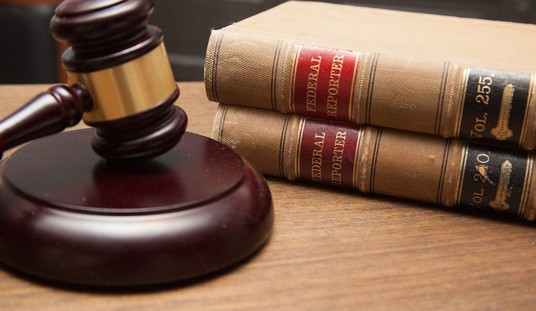Homicides and shootings in Philadelphia are up by more than 30% this year, reaching levels not seen for over a decade. While Mayor Jim Kenney and District Attorney Larry Krasner continue to talk up the need for more gun control laws, there are some signs that the old school approach to reducing “gun violence” isn’t sitting well with Philadelphia residents.
Military-grade weapons should not be on our streets. We need smart gun control to keep guns like this out of the wrong hands. https://t.co/d7i1vZbMH8
— Jim #MaskUpPHL Kenney (@PhillyMayor) August 16, 2020
Check out the replies to Mayor Kenney’s tweet, and you won’t see much support for his demand for “smart gun control,” and for good reason. As the city’s Group Violence Intervention program has noted, the shootings in Philadelphia are committed by a small fraction of the city’s overall population; one half of one percent of all residents. The vast majority of Philadelphians who own guns or want to own one aren’t ever going to commit a violent crime, so why target them and their Second Amendment rights when city leaders could focus on the small number of individuals driving the violence and bloodshed instead?
That’s the goal of the GVI effort, and if city leaders are willing to get behind the project, it could have a major impact.
The program involves getting “gang or group-involved individuals” to sit down for small group discussions with police, probation officers and community leaders. Roughly 30 at-risk residents will be part of those conversations.
The goal of the conversations is twofold.
“Let them know that the shooting must stop, but there’s also a genuine offer of help,” said [Theron] Pride, adding that participants will be encouraged to deliver that message to members of their informal networks.
The program — an effort Reeves, the doctor at Temple University, would consider a strategy for interrupting the spread of gun violence and containing new outbreaks — hinges on a combination of carrots and sticks.
Outreach workers offer participants — most of whom are on parole or probation — social services, job training and mental health services, but also threaten collective enforcement if the violence doesn’t stop.
I’ve written about programs like this before and the success that they’ve had in reducing homicides and gang-related shootings in cities around the country, but in order for Philadelphia’s program to succeed, District Attorney Larry Krasner is going to have to buy in to the idea of referring cases to the U.S. Attorney for prosecution. While social services, job training and mental health services are the “carrot,” the “stick” involves ensuring that there are actual consequences for shooting someone, and that means taking persistent violent offenders out of the local courts and prosecuting them in federal court, where those convicted will typically serve longer sentences and are not eligible for early release until at least 85% of their sentence has been served.
Unfortunately, Krasner and U.S. Attorney William McSwain haven’t seen eye-to-eye on many criminal justice issues, with McSwain accusing the D.A. of a soft-on-crime approach. It remains to be seen if Krasner is willing to get tough on the city’s most violent offenders if it means working hand-in-hand with the federal Department of Justice.
In addition to the Gun Violence Intervention program, there’s another anti-violence initiative in Philadelphia that’s worth highlighting. CBS Philly recently profiled the Youth Empowerment for Advancement Hangout (or YEAH Philly), a program that enables teens and local police to sit down and talk with one another in the hopes of dispelling mistrust and suspicion on both sides.
“When people in the hood see cops, it’s either run or get out the way,” Tyree Rudolph said. “Being able to speak to a cop face to face and not have no boundaries on what I have to say, is probably the best thing you can do for my generation.”
Officer [Ian] Nance coordinates with YEAH Philly getting groups of Philadelphia patrol officers to take part in sessions with the teens, sometimes even simulating shooting situations.
These are kids who say they are frustrated, not only by police but also by the people causing crime in their communities.
“I don’t feel like they care about the community and the youngsters,” a YEAH Philly member said.
“In the climate that we’re currently in, we need to have some very serious conversations,” Officer Nance said. “The uniform doesn’t make you perfect and it doesn’t absolve you of your sins. We have good people in the department, we have bad people in the department. People have to be accountable, and we have to hold people accountable.”
In order to bring down the homicide rate, police have to be able to make arrests, and prosecutors have to be able to make a case. That can be tough to do when witnesses may view law enforcement with as much suspicion as they do the gang members making life miserable on their block, or if they’re concerned about their own safety if they do testify. Breaking down those barriers of distrust is hugely important, and conversations like these can go a long way towards redefining the relationship between police and the residents they serve.
As both a Second Amendment supporter and someone who has come to the conclusion that fighting crime by trying to reduce the supply of illicit firearms isn’t nearly as important as reducing the demand for them, I applaud these efforts to take on the city’s growing homicides without trying to impose more restrictions on the law-abiding residents of Philadelphia. I’m just concerned that with anti-gun politicians like Mayor Kenney and D.A. Krasner in charge these programs aren’t going to get the support they need, and gun control will still be seen as the primary strategy to fight crime, despite its failures.









Join the conversation as a VIP Member